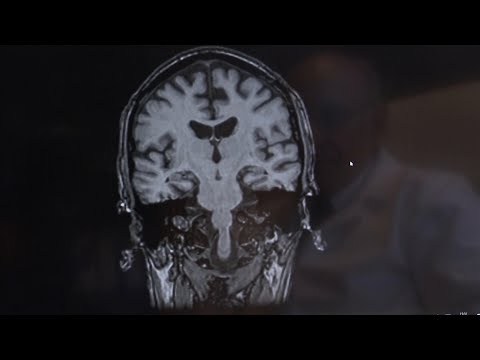(13 Jan 2025)
RESTRICTION SUMMARY:
ASSOCIATED PRESS
London – 8 October 2018
1. Various close of computer monitor showing MRI scan showing deterioration and cell death of 62 year old Alzheimer’s patient over seven years
ASSOCIATED PRESS
Boca Raton, Florida – 9 January 2025
2. SOUNDBITE (English) Dr. James Galvin, Professor of neurology at University of Miami:
"What they found was the lifetime risk of dementia after age 55 was 42%, and that that lifetime risk actually increases later in life. So from 55 to 75, it’s lower. But after 75, that’s what that risk really increases."
ASSOCIATED PRESS
London – 8 October 2018
3. Close of PET scan of healthy brain (left) and Alzheimer’s patient’s brain (right) red areas show degeneration and cell death
ASSOCIATED PRESS
Boca Raton, Florida – 9 January 2025
4. SOUNDBITE (English) Dr. James Galvin, Professor of neurology at University of Miami:
"So it’s not a guarantee that someone will develop dementia. And there are a lot of things we can learn from people who don’t develop dementia that could help us develop interventions."
ASSOCIATED PRESS
St. Louis – 29 September 2022
5. Close of scan of brain damaged by Alzheimer’s ++MUTE++
ASSOCIATED PRESS
Boca Raton, Florida – 9 January 2025
6. SOUNDBITE (English) Dr. James Galvin, Professor of neurology at University of Miami:
"We can take preventive measures and we can change our behaviors. And these are things that we have control over. We don’t control our age. We don’t control our sex. We don’t control our genes. Right? And that’s about 55% of the total attributable risk for disease. But 45% of the risk of developing Alzheimer’s disease are things that we have at least have some control over."
ASSOCIATED PRESS
New York – 22 October 2024
7. Various of people walking on path
ASSOCIATED PRESS
Boca Raton, Florida – 9 January 2025
8. SOUNDBITE (English) Dr. James Galvin, Professor of neurology at University of Miami:
"So you exercise more, you’re more cognitively active, more mindful, eat a better diet, or you don’t have blood, high blood pressure, you don’t have diabetes, you don’t have cholesterol, puts you at a lower risk of developing disease."
ASSOCIATED PRESS
ARCHIVE: Dates, locations unknown
9. Various tight shots of patients have blood pressure taken ++MUTE++
STORYLINE:
About a million Americans each year will develop dementia by 2060, roughly double today’s toll, researchers at NYU Langone Health reported Monday.
That’s based on a new study that found a higher lifetime risk than previously thought: After age 55, people have about a 4 in 10 chance of eventually developing dementia if they live long enough.
That’s a sobering number but there are steps people can take to reduce that risk – such as controlling high blood pressure, which harms the brain. And it’s not too late to try even in middle age.
"We can take preventive measures and we can change our behaviors. And these are things that we have control over," said Dr. James Galvin, a professor of neurology at University of Miami, who was not part of the study. "We don’t control our age. We don’t control our sex. We don’t control our genes. Right? And that’s about 55% of the total attributable risk for disease. But 45% of the risk of developing Alzheimer’s disease are things that we have at least have some control over."
"So it’s not a guarantee that someone will develop dementia. And there are a lot of things we can learn from people who don’t develop dementia that could help us develop interventions," said Galvin.
===========================================================
Find out more about AP Archive: http://www.aparchive.com/HowWeWork
Twitter: https://twitter.com/AP_Archive
Facebook: https://www.facebook.com/APArchives
Instagram: https://www.instagram.com/APNews/
You can license this story through AP Archive: http://www.aparchive.com/metadata/youtube/f316da4de2224e799e2376231e85bdfd
Author: AP Archive
Go to Source
News post in January 18, 2025, 6:05 pm.
Visit Our Sponsor’s:
News Post In – News





